Warren Adler's Blog, page 9
October 4, 2017
Panio Gianopoulos
I don’t often ask myself this question. The question I usually find myself asking is Why don’t I write? Or even more commonly, why didn’t I write? Why didn’t I write this morning when our puppy woke me up at dawn, scratching and whining at its crate door, and after putting him outside with his dish, I lingered in the dark kitchen of our sleepy house, my laptop within easy reach on the table. Why didn’t I write last weekend, when my children were riding their bikes outside, cycling up and down the street with the neighbor kids, shouting out inscrutable rules to erratic games. Why didn’t I write when I was staring out the window of the train coming home from work yesterday, or the day before yesterday, or the day before that? And the week before that?
Today, while racing my 13 y/o daughter’s red bike along the old aqueduct path that leads to the train station—this junky bike with its crooked handlebars and hyper-sensitive brakes that I know won’t get stolen—I accidentally realized the answer to this recurring question. Why didn’t I write? Not because I’m lazy (though I can be), or because I’m uninspired (though I can be), not because I’m tired (I’m always tired) or distracted (that too) or afraid of failure (no one has to read it), it’s because writing anything good requires feeling something. Anything I’ve ever written that I’ve been proud of, anything more than a bit of wordplay or prettiness, anything that’s worthwhile, that resonates deeply with a reader—this demands an emotional involvement. It requires rousing ourselves from the curated sleepwalk that is modern life—entertainment and diversion any and all the time, nestled in the palm of our hand—and stepping into pain, discomfort, sadness, and fear. There’s happiness, too, of course, there’s excitement and passion and intrigue, flirtation and nostalgia, curiosity and discovery—but pain and its unforgiving friends are right there at the center of it all. And it’s tempting, unbelievably tempting, to avoid that pain.
Why not? What else do we do in our ordinary lives but avoid pain? We try our best to insulate ourselves from pain, to predict and evade it, to position ourselves and our family so that it can’t touch us.
This isn’t a moral failure, incidentally. It’s sensible. It’s strategic. It’s mostly inevitable: avoiding pain is a biological imperative, what the amoeba does, as do the starfish, the hummingbird, and the ape. It’s an impulse that I understand intimately, cellularly. But it’s also the impulse that holds us back when we try to create something great. Because while avoiding pain is natural, it’s also the death of art. Art is the truth. It dabbles in lies and fictions and misdirection, but these are all part of the bigger truth: this agonizing, fascinating, frequently unbearable collision of emotions and actions called life. I don’t care if you’re writing a novel, choreographing a dance, or staging a puppet show, if you sidestep pain and emotion, if you won’t go near discomfort, anxiety, and worry—even to transform them—then you’re just messing around. You might even fool some people for a while, but you’ll know. Is it real? Did you truly do what you could have, what you should have, done?
You’ll know.
The post Panio Gianopoulos appeared first on Warren Adler.
September 27, 2017
Ayelet Tsabari
I began writing before I knew how to write. As a child, I used to draw comic strips and narrate the story to my siblings and cousins. As soon as I learned the alphabet I began writing stories, poems, plays and scripts. I did not choose writing; it had chosen me, presented itself to me as an answer to a question I had not yet known to ask.
At the age of ten, after my father passed away, writing became more urgent. I wrote because I didn’t know what else to do. Because it was the only thing that made sense. Because immersing myself in words was a distraction from grief, from missing him, from my life. Because being able to articulate my emotions, to create alternate universes and populate them with characters I cared about, provided comfort. Writing was survival.
These days, writing is where I take risks, where I dare to feel deeply, allow myself to try and fail and try again. Every time I sit at my computer to write I am walking at the edge of a cliff. I jump, and there is no safety net. And I feel badass, dangerous. Alive.
The post Ayelet Tsabari appeared first on Warren Adler.
September 20, 2017
Warren Adler’s #WriteOn Campaign Video Survey
Georgia Hunter
Looking back, I suppose you could say that writing has always been a part of my ethos. One of my earliest memories is falling asleep to the sound of my father tapping away on his Olivetti typewriter as he composed his first novel from his office in our small Massachusetts home in the woods. I was three when Dad’s Softly Walks the Beast was published, four when I penned my own first “novel,” Charlie Walks the Beast. At eleven, concerned about the effects of pollution on our planet, I pitched an Opinion piece to my local paper, The Sun Chronicle, and at twenty-seven, I quit my day job to become a travel writer, and, soon after, to tackle the daunting project of researching and recording my family’s Holocaust past. This last venture sent me on a journey that, over the course of nearly a decade, offered me a deep and heart-wrenching understanding of my roots (I had no idea as a kid that I was a quarter Polish, or that I came from a family of Holocaust survivors), and also of what it meant to be a young European Jew on the run during the Second World War. My family’s story is one of courage, perseverance, ingenuity, and love. Unearthing it turned out to be the hardest undertaking of my life, but also one of the most rewarding; it brought me closer not only to my ancestors—and in turn to my sense of self—but to a chapter in history that begged to be remembered.
http://georgiahunterauthor.com/
The post Georgia Hunter appeared first on Warren Adler.
September 13, 2017
Finding Grace: Captured By A Cult
The chilling new drama from Warren Adler, the bestselling author of The War of the Roses, gets to the heart of brainwashing and its power to corrupt and control.
A father. A mother. A daughter. A cult.
When their twenty-three-year-old daughter goes missing, divorcees Harry and Paulie are forced to leave behind their newly constructed lives to track Grace down. But Grace isn’t lost, not physically at least. They find her seemingly unharmed in California on a sunny farm the other residents call “Camp Star.” But nothing is as it seems…
Sinister motives lurk behind the smiles of those at the camp and the two soon learn that Grace is in the clutches of a notorious cult. Under the spell of mind control, she denies Harry and Paulie as her family and shuns their love, leaving them to search for answers in the most desperate of places.
Scrambling to piece together their shattered lives, Harry and Paulie race against the clock to bring Grace back home – but will she ever be able to return? How do you help someone who doesn’t know they’re lost?
The post Finding Grace: Captured By A Cult appeared first on Warren Adler.
Mark Wisniewski
When I was a kid, the best stories came through my ears, usually during meals—often on “happy” holidays like the Fourth of July. There were certain old relatives who excelled at holding court as it were. I was curious and shy, so I’d listen demurely.
Then came school, where reading and writing happened and it struck me to try to “keep up” with the best storytellers I knew by writing stories of my own. By writing I could also make permanent some family lore. I thus became kind of a cipher for the Wisniewski family, which was an expansive clan by any measure.
Like many back then, I then found myself more and more often living away from home—for the sake of education, employment, and adventure. Writing then changed from a pastime inspired by family to work in which I’d fictionalize and thus report some of the more curious experiences I’d had out in the world. At some point readers told me they were making a distinction between my “funny stories” and my “sad stories”; in any case, the better stories were published as short stories in print magazines and, finally, as novels.
That’s it. That’s more or less how I got hooked. Add to this the reading of work by experienced novelists who’ve honed their craft impressively, and you can find yourself doing it every day, sometimes while a meal sits beside you silently, waiting for you to finish.
The post Mark Wisniewski appeared first on Warren Adler.
September 6, 2017
Grey Eagle Films Officially Launches Production Raise Fund
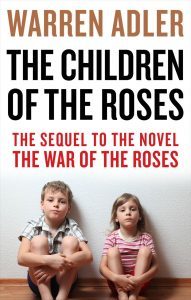
Screen Writers Attached:
— &
—
Creative Director Attached:
—
Box Office Comparatives:
The War of the Roses, Young Adult, The Breakup, and Fargo
Media Pickup:
The War of the Roses Sequel in the Works — FILM PULSE
Chandeliers Will Fall! War of the Roses Sequel in the Works! — MOVIE HOLE
War of the Roses Getting a Sequel That will Center on the Children — CINEMA BLEND
Sequel to 1989’s War of the Roses Is in the Works — SPLIT SIDER
Warren Adler Releases The War of the Roses: The Children — BROADWAY WORLD
There’s a Sequel to The War of the Roses in the Works — AV CLUB
New War of the Roses Pic Flowering — DEADLINE
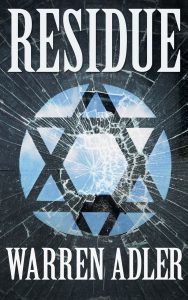
Residue
Screen Writer/Director Attached:
—
Box Office Comparatives:
Woman in Gold, Marathon Man, The Debt, and Before the Devil Knows You’re Dead
Media Pickup:
Vondie Curtis-Hall Directing Thriller Residue — VARIETY
Vondie Curtis-Hall Signs Up to Adapt and Direct Residue — INDIEWIRE
The Serpent’s Bite
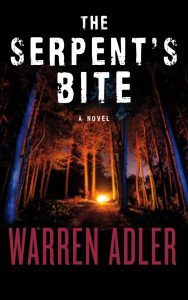
Director Attached:
—
Co-producer and Star:
—
Box Office Comparatives:
The Edge, Deliverance, and The River Wild
Media Pickup:
Pitch Perfect Star Anna Camp Boards Drama The Serpent’s Bite — VARIETY
Anna Camp Thriller The Serpent’s Bite to be Written by Alex Alemanni — VARIETY
Torture Man
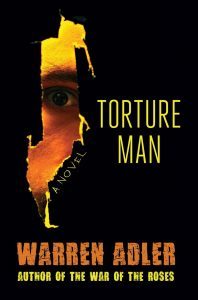
Screenwriter/Producer Attached:
—
Director Attached:
—
Box Office Comparatives:
Zero Dark Thirty, Traitor, Rendition, and A Mighty Heart
Media Pickup:
Warren Adler’s Thriller Torture Man in the Works as a Movie — VARIETY
Mourning Glory
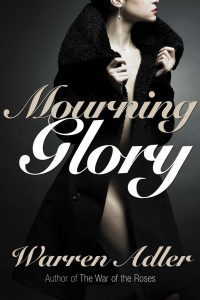
Writer/Director Attached:
—
Creative Producer Attached:
—
Box Office Comparatives:
Crazy, Stupid, Love; Trainwreck; In a World…; and Enough Said
Media Pickup:
Dark Comedy Novel Mourning Glory in the Works as Movie — VARIETY
Dark Comedy Novel Mourning Glory in the Works as Movie — WORLD NEWS
Dark Comedy Novel Mourning Glory in the Works as a Movie — BOSTON HERALD
Target Churchill
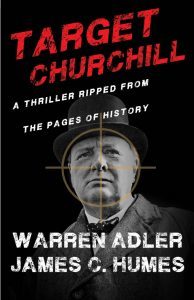
Screen Writers Attached:
— &
Box Office Comparatives:
In the Line of Fire, The Imitation Game, The King’s Speech, and The Queen
Media Pickup:
Soviet Spy Thriller Target Churchill Movie in the Works — VARIETY
Trans-Siberian Express
Comparatives:
The Crown, Doctor Zhivago, War and Peace, and Genius

Media Pickup:
Trans-Siberian Express Movie in the Works Based on Warren Adler Novel — VARIETY
The post Grey Eagle Films Officially Launches Production Raise Fund appeared first on Warren Adler.
Sonia Taitz
I have always been in love with the power of language. As the daughter of refugees, I spoke two: Yiddish and English. It amazed me that different sounds and syllables could mean the same thing, yet carry flavors, nuances, of their origins. I also marveled at the power of the written word. I’d read the short phrases in the bubbles over a comic book character’s mouth; they hovered with a force so much greater than that of mere speech. Later, in adolescence, I’d be thrilled by the subtitles in foreign films, how they seemed so epigrammatic and wise.
When I turned 21, I decided to go to law school, a place, I thought, where language could be used with the ultimate force. (At first, my immigrant parents were thrilled by this.) In the legal world, certain words (like “I do” or “I swear”) can become “performatives” — they have the weight of deeds. As I studied, I was also beguiled by legalese – the language lawyers use to make things more official, more arcane. It seemed to offer an entrée to a hidden world of almost mystical significance.
Pretty soon, though, I found that the language of law was often a pretext for making things needlessly complicated and often incomprehensible. In litigation, my chosen area, verbal skills were often used to confuse, to confound, to mislead. I had always loved words, but now, I was skillfully stringing them together in briefs that did anything but tell the simple facts. Real life was still there, and in real life lies the possibility of wisdom – but the pile-on of verbiage was meant to hide that essence, and did. My mother, seeing how much pressure I was under, encouraged me to leave the corporate world. She used a Yiddish word to make her point: “Let them plotz,” she said. Let them burst. Leave them, and find your own way.
So I left the law and became a writer. And what I’ve learned is that it is not merely the power of words that matter – it is their power to share, benevolently, the human experience. Not to win, dominate, or pointlessly mesmerize—but to give. In my current book, GREAT WITH CHILD, a bright and verbal lawyer follows a similar path. And as her words and world become less clever, she finds meaning in the humble, more beautiful truth, and in tenderness.
The post Sonia Taitz appeared first on Warren Adler.
August 30, 2017
Leah DeCesare
Since the time I was very young I wanted to be a writer. I would write poems and stories and even sent off the first five chapters of a novel to a Big Five New York City publishing house when I was ten years old. That was my first badge as a writer – a rejection letter in fifth grade!
Recently, I found a drawing I did at eight years old under the heading: “What I want to be when I grow up.” The image was of me writing with a disproportionately huge pencil at a clear desk (unlike my own now) with a plant on it (I always have fresh flowers in my office). I’ve been a lifelong reader and have loved writing from the earliest of my memories. I always wrote, even when I wasn’t writing for publication or for others, I was writing for myself. Writing a novel was close to my heart but I wasn’t doing it. I was working in NY, raising three children, volunteering, other things were taking precedence. Finally, in my early 40s, I asked myself what I was waiting for, I knew it would be something I would regret not doing and I jumped into action.
The day I finished my first draft was monumental – I had written a novel! Of course, first drafts are crap and the book is dramatically different from those pages, but it was such a victory, such an accomplishment. My prior two nonfiction books didn’t feel the same, having written a novel represented the realization of a dream to me. To be a debut novelist at 47 is kick-ass and I’m loving writing my second novel while promoting Forks, Knives, and Spoons. I’m living the life I imagined in my childhood.
The post Leah DeCesare appeared first on Warren Adler.
August 22, 2017
Do it Yourself: A 10-Step Guide to Self-Publishing an Audiobook
The audiobook industry is quickly growing, yet it can seem daunting to authors unfamiliar with the process.
For the past couple of years, I have slowly been turning my repertoire of 50+ works of fiction into audiobooks. I have encountered many roadblocks, from managing flaky narrators to choosing a payment model.
I just finished the production of my 27th audiobook Heart of Gold, which has been a breeze, but it wasn’t always this easy.
1. Determine if the audiobook industry is right for you
The audiobook market is growing, but is it worth it for you as a writer?
Frankly, audiobooks are time consuming — it’s like re-writing your novel. All the hours that go into production and editing can be costly, so you must decide if the audiobook market will be lucrative enough for your books.
This is a personal decision a writer must make by considering a multitude of factors.
Ask yourself these questions: Do I have the time to put into this project? Do I see my novels doing well as audiobooks? Will my fan base be receptive to this new platform?
2. Find your perfect narrator
Easier said than done!
It’s imperative that the narrator you select fits your book because he or she will be telling your story. The voice actor should represent the tone of your characters.
If your book is in first person, the narrator should represent that specific character. Think about how their voice should sound: female or male, sultry or raspy? Make sure you carefully choose because the narrator can make or break a novel.
For my novel Mother Nile, I chose an engaging narrator with a British accent because of his worldly and sophisticated voice. He also just happens to be familiar with the pronunciation of many Arabic words, making him the perfect match for my book, which partially takes place during Britain’s occupation in Egypt.
For those who aren’t writing fiction, but instead a memoir, then perhaps you’ll want to narrate your own book.
3. Correct your audio
This is one of the most time consuming parts of audiobook production because you must listen through your novel carefully.
I’ve come across sound glitches, narrator’s coughing and even the sound of dishes clanking in the background.
You have to mark the time stamp and let the narrator know there is a mistake they must correct.
4. Decide when enough is enough
Sometimes narrators can be difficult to work with; they may miss deadlines, they may make tons of mistakes and technical glitches throughout the narrative, etc.
Sometimes it’s better to drop them and look for a new narrator, as long as it doesn’t go against any contract .
I had originally chosen a different narrator for one of my books before I (thankfully) came across Colleen Crimmins. The original narrator missed lines and had many audio glitches in her work.
Unfortunately, we had to change narrators due to the quality of the work, but in exchange I got a great narrator who did a flawless job.
5. Pick which mistakes enhance your narrative
Audiobooks rely on sound rather than sight, so sometimes narrators will add a word or change a clause slightly because it “flows” better when spoken.
If it sounds fluid and normal, it is okay to let the ‘mistake’ go by, allowing the narrative to sound more colloquial.
As an added bonus, it also saves editing time.
Read the other 5 steps on The Write Life here.
The post Do it Yourself: A 10-Step Guide to Self-Publishing an Audiobook appeared first on Warren Adler.
Warren Adler's Blog
- Warren Adler's profile
- 111 followers



